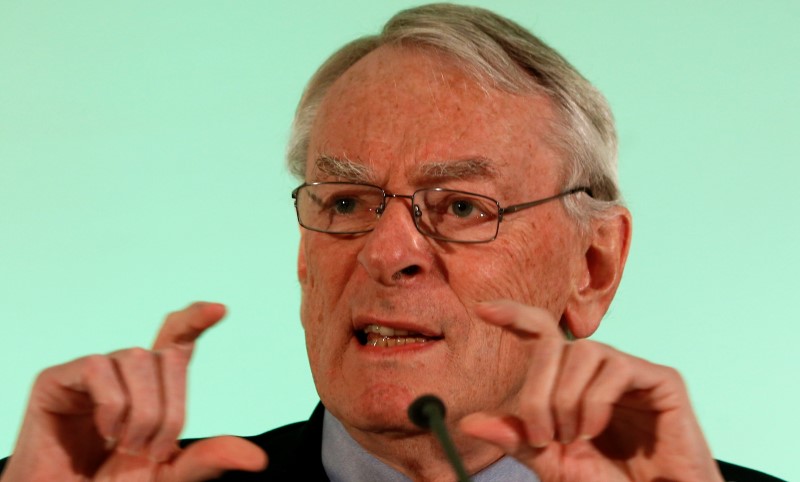By Steve Keating
(Reuters) – With a jaded sporting world looking on, the International Olympic Committee (IOC) and the athletics governing body face the moment of truth on Friday, says former World Anti-Doping Agency president Dick Pound as drug tainted Russian athletes await their fate for the Rio Games.
The International Association of Athletics Federations (IAAF) Council will meet on Friday in Vienna to decide if Russia, currently suspended from international track and field competition, will have the ban lifted clearing a path for them to compete at the Rio Olympics.
But even if granted amnesty by the IAAF the Russians will still have one more hurdle to clear with the IOC having the final say on whether they will be allowed into the Rio starting blocks.
Russia was suspended from all track and field in November after a WADA independent commission led by Pound unearthed evidence of widespread state-sponsored doping.
Pound told Reuters that both the IOC and IAAF are under tremendous scrutiny and mounting pressure from athletes, sponsors, broadcasters and fans to get the Russian decision right and restore confidence in both the sport and Olympics.
“My gut feeling is that some of the folks in the IOC bubble have no sense of the collective outrage if it makes the wrong decision,” said Pound, a Canadian lawyer and longstanding IOC member. “It is not like we are talking about Sierra Leone here.
“The Russians have the habit of doing an indoor hammer throw whenever they don’t get their way and that is what everyone is trying to avoid.
“But you forget that we got along perfectly well in Los Angeles without Russia being there the same as we did in Moscow without the U.S. being there.”
As Pound pointed out, the Olympic movement survived both a U.S. boycott of the 1980 Moscow Summer Games and a Russian decision not to take part in the 1984 Los Angeles Games.
Athletes have called for tough action and on Thursday Athletics Canada sent an open letter to IAAF president Sebastian Coe noting little progress had been made in enacting doping reforms and Russian track and field athletes should not have their suspension lifted.
“That is a fear (that Russia will escape). What I hope is the people in the right positions are going to do the right things,” said Pound.
“You hope first of all that this (IAAF) Task Force will take into account not only the report my little group did but the additional information that came out in the ARD program and the WADA report (on Wednesday).”
Since Pound tabled his report late last year more allegations of widespread doping within Russia have surfaced leading to more investigations.
Russian hopes of having the ban lifted suffered a blow on Wednesday when WADA released a damning report that detailed failed drug tests and the obstruction of doping control officers.
According to the report, Russian athletes returned 52 adverse findings, including 49 for meldonium. It also said there were 23 missed tests, which the report called “significant”, 111 whereabouts failures and 736 tests were declined or cancelled.
The report also noted that testers were routinely obstructed from gaining access to athletes who used military cities as the location for their whereabouts, knowing testers would need special permission to gain access.
“You’re hiding your athletes in closed military cities, it takes 30 days to get permission to get in there. Who do they think they are kidding?” said Pound. “They are underlining the fact they are the masters of their own problems.
“We said, ‘look if you go 120 percent with all your power and get right on with it you have a fighting chance (of being in Rio), but that’s all.’
“All the time they spent denying it, saying it was all a plot and purporting to change, they wasted the opportunity. Not to bring about a cultural change, because that is going to take time, but at least conduct change that would give people some degree of confidence.”
(Editing by Larry Fine)


